May one day this delusion end
Maybe we believe in us
Pictures from another life
Shadows from another past
Every Day I Die marks the stark solo emergence of THEODOROS, known to many as the voice behind Lefki Symphonia. Here, there is no looking back—only downward, inward, and through. This is not a torch passed, but a fire reignited. Cold synths crack like bone under pressure, guitars slice with surgical detachment, and drums stomp forward like funeral processions draped in decay. Theodoros’ voice intones allegories and elegies with the steely calm of someone who’s already walked through every flame.
What results is an album both liturgical and lacerating, articulating post-punk’s austere dialect through modern ruins, with each track cutting deeper than the last. Born under the new banner of DREAM RITUAL, Theodoros’ own label and publishing house, Every Day I Die doesn’t search for light—it learns how to sing within the dark.
The album opens with the purring croon of Never Forget, where jangly guitars and pulsing synths guide a slow spiral through fate’s frayed edges and memory’s murky persistence. Joy is glimpsed briefly before grief grips tighter; the past pulses like a phantom limb—familiar, futile, unshakable. Electroclash static collides with darkwave density, all held together by post-punk’s skeletal frame of tape and teeth.
The title track, Every Day I Die, isn’t an elegy—it’s an exorcism. Angular and aching, it cuts with minimalist precision, all brooding strums and fatalistic refrains coiling into a dirge that’s both hypnotic and harrowing. Melanie Merges-Dimitriou’s lyric video loops glitches that mimic déjà vu’s uneasy grip—a flickering mirror where identity splinters, doubles, and ultimately disintegrates. It’s not about closure but survival—scarred, simmering, seeking only truth, however brutal, however beautifully broken.
Sometimes We Dream sways between surrender and salvation—a smouldering nod to Tears for Fears, where fire meets frost and sorrow sings its final verse. It thrashes through dusk and devotion, waltzing upon wreckage beneath a bruised moon. This isn’t a call for rescue but for recognition: for feeling, for falling, and for flying, if only to prove we’re still awake.
Drums throb like a final heartbeat as Wait For The Day trudges across a threadbare horizon, where faith falters and neon synapses sputter out of sync. Thick basslines swell beneath vocals that seduce and sermonise equally—less a plea than a provocation. It’s a static psalm whispered through locked jaws, defiant yet resigned, weariness weaponised as resistance. A twilight hymn for those too tired to hope but too stubborn to stop listening.
Continuing this nocturnal journey, Never Seen The Stars drifts like a new wave waltz through yesterday’s wreckage. Synths shimmer and shiver beneath a rust-hued firmament, wind keens, and ash clings to memories like old perfume. The vocals exhale slowly—less singing, more surrender—threading through a baroque dirge steeped in decadent decay. Bells toll like lost satellites blinking blindly through the night, drawing elegies from the ether. In chrome corridors stripped of sky, remembrance becomes resistance—the last flicker in a world already forgetting the names of its constellations.
With lyrics entirely in Greek, Sto Aima marches forward with purposeful drums and emotionally charged vocals, pushing guitar melodies like waves that rise and recede toward an emotional crest. The lyrics traverse memory’s quiet ruins—waves of glass and blood breaking through stillness. Joy and sorrow intertwine beneath a skyline poised to collapse, where beginnings bleed inevitably into endings. In a city frozen in silence, time stalls, and the night seeps slowly, endlessly, full of ache.
The pace quickens again with Dark Entrance, a propulsive darkwave track built on a dancefloor-ready synth hook and razor-edged post-punk guitars. Beneath its catchy surface, the lyrics navigate a liminal terrain—a shadowed corridor filled with dust, doubt, and disorientation. Time slips its leash, memory betrays, and the voice at the song’s core persists softly but insistently, pleading for a return to dreams—before the fall, before forgetting, before joy burned to ash.
Sun Behind the Sun shimmers brightly, its pop-infused chorus immediately melodic, beckoning listeners to join. Thick bass grounds the track, dancy drums pulse beneath guitar flourishes, and charismatic vocals carry sincerity beneath their polished surface. The lyrics explore worlds where trust withers and seasons race past too swiftly. The earth sways, love fades, leaving neither devotion nor despair, just quiet dread—the delicate anticipation of a frost blooming beneath a rust-stained sky. Winter isn’t arriving; it’s always been here, and from its silence, something stirs—not quite beginning, not quite ending.
Eerie, discordant synths introduce Flowers In Flames, spiraling into a sparse yet searing dirge etched in ash and static. Vocals arrive hauntingly poetic, raw, and resolute, as barbed-wire guitars and rusted rhythms drag listeners through sonic wreckage. Lyrically, the song conjures images of a broken Eden—roses refusing to bloom, gold tarnishing, birds steering clear of silence. Yet within the soot, belief clings ivy-like to ruin, smothered hymns, and old lives, burned but never fully erased.
Closing the album, No One Falls opens with tolling bells—a funereal summons landing like breath held too long. Metallic drums clack ominously, echoing machinery giving way to choral synths that lift the track into solemnity. Vocals emerge as a poised lament, unflinching, rising gradually into a swell of guitars, ending not with resolution but reckoning. When collapse arrives, they don’t flee—they remember. And in this quiet, steadfast act lies a final, powerful resistance.
Listen to Every Day I Die below and order the album here. Vinyl, CDs, cassettes, and merch can also be found at the official Dream Ritual shop here.
Follow THEODOROS:




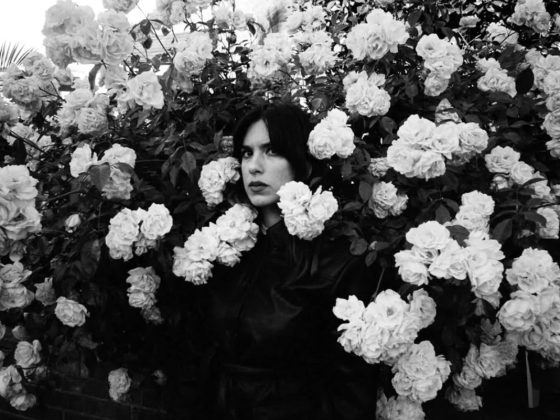
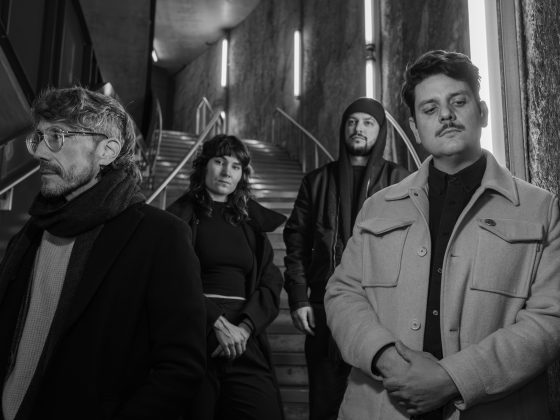

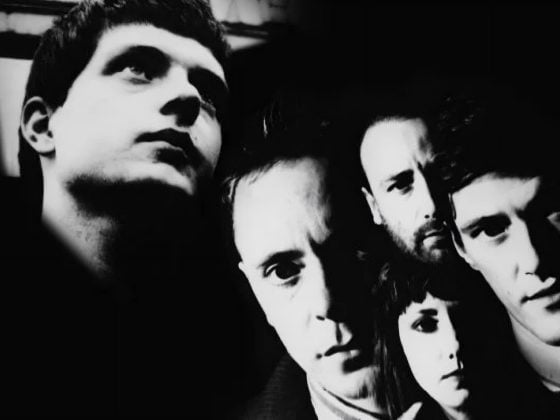


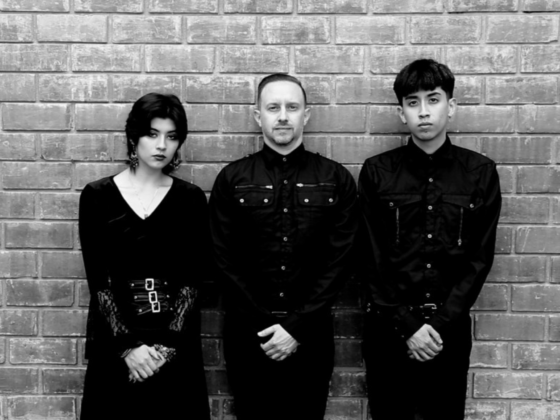
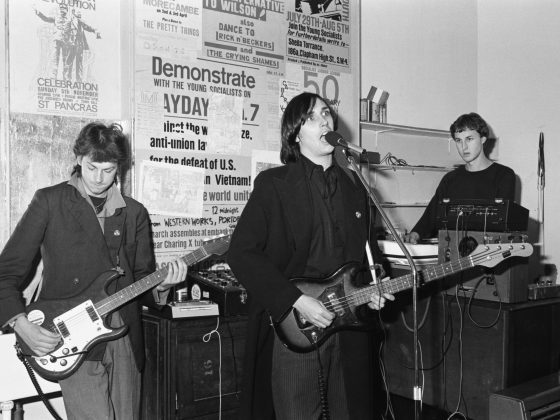




 Or via:
Or via: